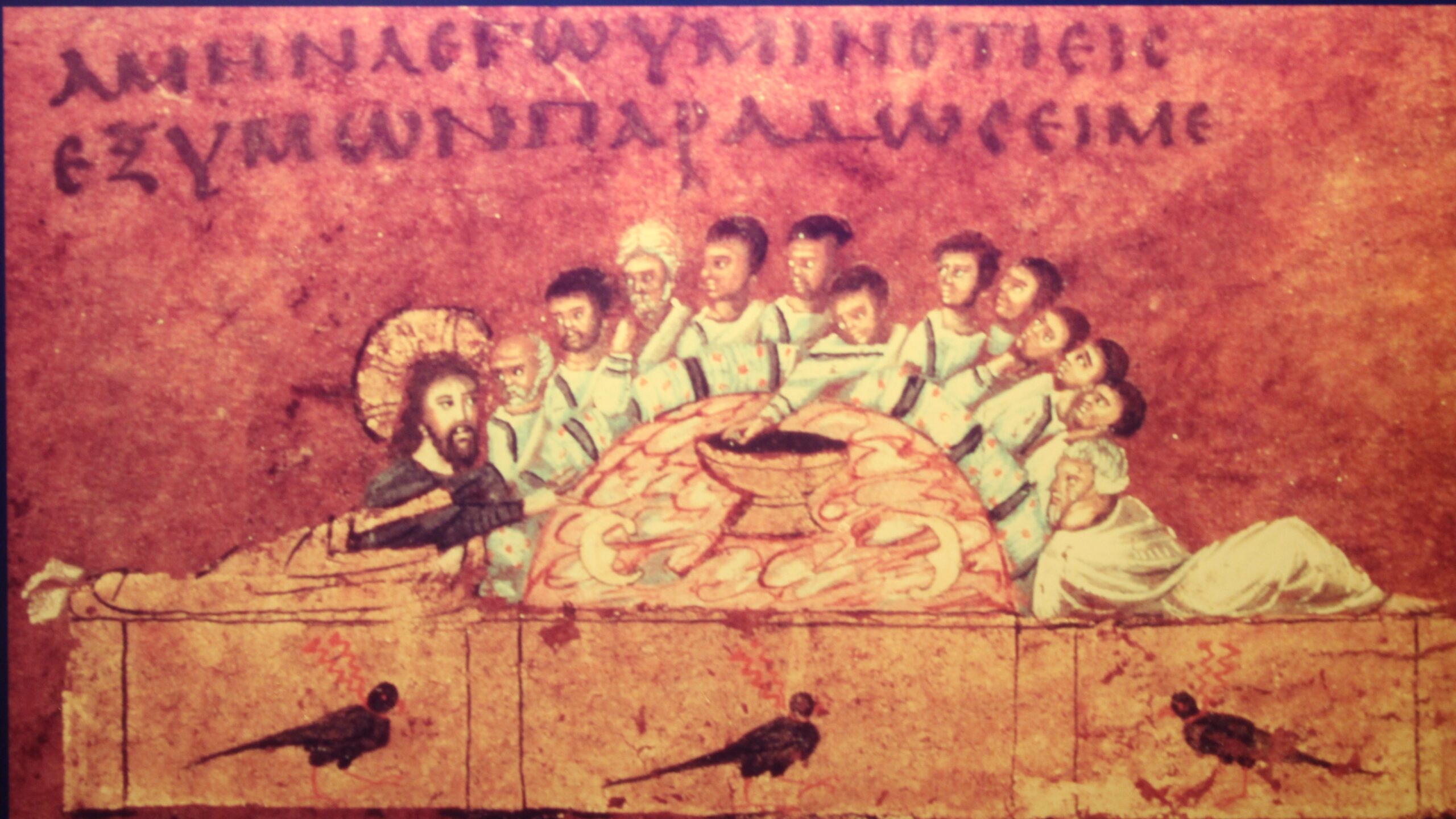
Luke 22:19-20
NL312
19 Then he tookA a loaf of bread,B and when he had given thanksC
A “took” = lambano. It does not refer to passive receiving of something, but active acceptance or taking of something whether it is offered or simply nearby. It focuses on individual decision and action.
B “bread” = artos. Perhaps from airo (raise, take up, lift, remove). This is bread or a loaf. It is a loaf as raised.
C “given thanks” = eucharisteo. From eu (good, well, well done, rightly) + charis (grace, kindness, favor, gratitude, thanks; being inclined to or favorable towards – leaning towards someone to share some good or benefit; literal, figurative, or spiritual; grace as abstract concept, manner, or action); {from chairo (to rejoice, be glad; used to say hello; properly, delighting in the grace of God or experiencing God’s favor); from char– (to extend favor, lean towards, be inclined to be favorable towards)}. This is giving thanks, being thankful. It is a recognition that God’s grace is good and actively showing gratitude. It can also be used for saying grace before eating. This is where “eucharist” comes from.
he brokeD it and gaveE it to them, saying,F “This isG my body,H
D “broke” = klao. 14x in NT. This is to break, to break in pieces as one breaks bread.
E “gave” = didomi. To give, offer, place, bestow, deliver. This is give in a literal or figurative sense.
F “saying” = lego. This is to speak, say, name, call, command. It is generally to convey verbally.
G “is” = eimi. This is to be, exist.
H “body” = soma. Perhaps from sozo (to save, heal, rescue); from sos (safe, well, rescued). This is body or flesh. It can be body in a literal or figurative sense (as the body of Christ). This is where the word “somatic” comes from.
which is givenI for you. DoJ this in remembranceK of me.”
I “given” = didomi. Same as “gave” in v19. See note E above.
J “do” = poieo. This is to make, do, act, construct, abide, or cause.
K “remembrance” = anemnesis. 4x in NT. From anamimnesko (to remind, admonish; to follow the path of memory); {from ana (up, again, among, anew) + mimnesko (to remind or remember; memory through an active, intentional process or being mindful; not incidentally or accidentally remembering); {from mnaomai (to remember; by implication give reward or consequence); perhaps from meno (to stay, abide, wait, endure)}}. This is intentional remembering to re-experience the effect of the event. It is active, motivated as a memorial.
20 And he did the same with the cupL after supper,M saying, “This cup that is poured outN for you
L “cup” = poterion. From pino (to drink literally or figuratively). This is a drinking vessel. Figuratively, it can refer to one’s lot, to fate, or to what God has in store for you.
M “supper” = deipneo. 4x in NT. From deipnon (a dinner or a feast – a meal in the afternoon or, more commonly, the evening); from the same as dapane (cost or expense); from dapto (to devour). This is to eat the main, evening meal.
N “poured out” = ekcheo. From ek (from, from out of) + cheo (to pour). This is something poured out in a liberal fashion. So, it is gushing, spilling, or shedding.
is the newO covenantP in my blood.Q
O “new” = kainos. This is not new as in new versus old. This is new in the sense of novel, innovative, or fresh.
P “covenant” = diatheke. From diatithemi (to place separately – to make a will or covenant; this is arranging ahead of time how things will be accomplished); {from dia (through, because of, across, thoroughly) + tithemi (to put, place, set, fix, establish in a literal or figurative sense; properly, this is placing something in a passive or horizontal position)}. This is a will, covenant, contract, or agreement.
Q “blood” = haima. This is blood in a literal sense as bloodshed. Figuratively, it can also be used to refer to wine or to kinship (being related).
Image credit: “The Last Supper” from “The Rossano Gospels,” 6th century.
